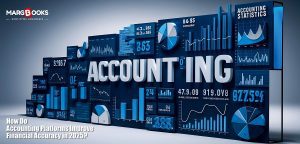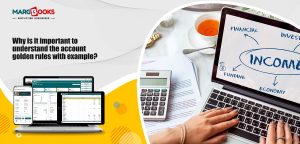Financial accounting is a cornerstone of every successful small business. It helps you track income, expenses, and profits, ensuring your business stays on the right path. However, understanding key financial accounting terms can be challenging, especially for small business owners who may not have a background in finance. This guide is here to simplify those concepts and provide you with the knowledge you need to manage your business effectively.
Whether you own a local bakery, an online retail chain using accounting software, or even a pharmacy leveraging pharmacy billing software, mastering these terms is critical for your financial success. Let’s dive into the must-know financial accounting terms for small business owners.
Why Financial Accounting Matters for Small Businesses
Small businesses operate in a highly competitive environment. Accurate financial records enable you to:
- Track Financial Health: Understand how your business is performing.
- Make Informed Decisions: Allocate resources wisely based on data.
- Ensure Compliance: Stay on top of tax regulations and financial reporting requirements.
- Secure Funding: Present clear financials to investors or lenders.
Essential Financial Accounting Terms
To simplify your financial management, here are some foundational terms every small business owner should know:
1. Accounts Payable (AP)
This refers to the money your business owes to vendors or suppliers for goods and services received. It’s recorded as a liability on your balance sheet. Staying on top of your AP ensures you maintain good relationships with suppliers and avoid late fees.
2. Accounts Receivable (AR)
Accounts receivable represent the money owed to your business by customers. Monitoring AR helps ensure timely cash flow, which is vital for operations.
3. Cash Flow
Cash flow tracks the money coming in and going out of your business. Positive cash flow means you’re earning more than you’re spending, which is crucial for sustainability.
4. Balance Sheet
A balance sheet provides a snapshot of your business’s financial position at a specific point in time. It outlines your assets, liabilities, and equity.
5. Profit and Loss Statement (P&L)
Also known as the income statement, this report summarizes your revenues, costs, and expenses over a period. It’s essential for understanding profitability.
6. General Ledger
The general ledger is a complete record of all your business’s financial transactions. It’s the foundation of your accounting system and supports other financial statements.
7. Depreciation
Depreciation accounts for the reduction in value of tangible assets, such as equipment or vehicles, over time. It’s important for tax calculations and asset management.
8. Equity
Equity represents the ownership value in your business. It’s calculated as assets minus liabilities. Understanding equity helps you gauge your business’s net worth.
Related Read: What are the Objectives of Accounting Standards
Tools for Simplifying Financial Accounting
Understanding accounting terms is just the beginning. Leveraging the right tools can make managing your finances easier. Here are some options tailored to specific industries:
Online Retail Chain Accounting Software
For businesses operating online retail chains, accounting software designed specifically for e-commerce is invaluable. These tools can:
- Track sales and expenses across multiple platforms.
- Integrate with inventory management systems.
- Generate real-time financial reports to help you make data-driven decisions.
Pharmacy Billing Software
Pharmacies face unique challenges, such as handling insurance claims and tracking medication inventory. Pharmacy billing software helps:
- Automate billing and claims processing.
- Ensure compliance with healthcare regulations.
- Provide detailed sales and financial reports.
Online FMCG Retail Chain Accounting Software
Fast-moving consumer goods (FMCG) businesses require robust accounting systems to manage high transaction volumes. Online FMCG retail chain accounting software offers features like:
- Real-time sales tracking.
- Automated tax calculations.
- Integration with supply chain management tools.
Tips for Managing Small Business Finances
Here are some actionable tips to improve your financial management:
- Invest in Accounting Software: Choose a platform that meets your industry’s specific needs, whether it’s an online retail chain accounting software or pharmacy billing software.
- Monitor Cash Flow Regularly: Create a cash flow statement each month to stay on top of your finances.
- Hire a Professional: If accounting feels overwhelming, consider hiring a CPA or a financial advisor.
- Stay Updated: Tax laws and regulations change frequently. Stay informed to avoid penalties.
- Use Automation: Automate repetitive tasks like invoicing and payroll to save time and reduce errors.
Common Challenges in Financial Accounting for Small Businesses
Many small businesses encounter obstacles in financial accounting, such as:
- Lack of Knowledge: Many owners are unfamiliar with financial terms and concepts.
- Inadequate Tools: Using spreadsheets instead of modern accounting software can lead to inefficiencies.
- Cash Flow Issues: Poor cash flow management is a common reason small businesses fail.
- Compliance Problems: Failing to adhere to tax laws and financial reporting requirements can result in fines.
To overcome these challenges, invest in education and the right tools, such as online FMCG retail chain accounting software or pharmacy billing software.
Final Thoughts
Mastering financial accounting terms and tools is essential for small business success. By understanding concepts like accounts payable, cash flow, and equity, you can make smarter financial decisions. Additionally, leveraging industry-specific software, whether for online retail chains or pharmacies, can streamline your processes and help you focus on growth.
With the right knowledge and tools, managing your finances doesn’t have to be daunting. Take charge today and set your business up for long-term success.
Related Read: Exploring Basics of Accounting Terminology
Frequently Asked Questions (FAQs)
What is the difference between accounts payable and accounts receivable?
Accounts payable refers to the money your business owes to suppliers, while accounts receivable is the money customers owe your business.
How can accounting software benefit small business owners?
Accounting software simplifies financial management by automating tasks, providing real-time insights, and helping with compliance.
What\u2019s the importance of tracking cash flow regularly?
Regular cash flow tracking ensures you can identify potential shortages, plan expenditures, and maintain operational stability.




